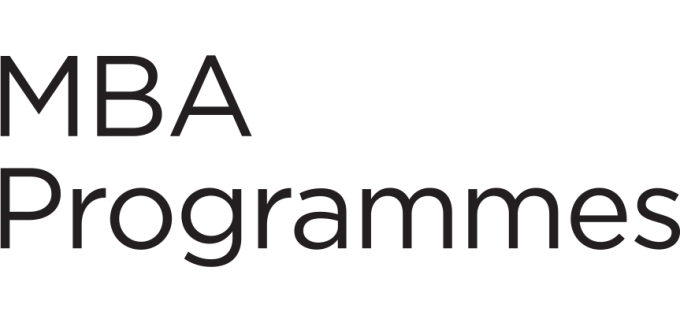Core Courses
October 18, 2023 2025-11-19 17:08Core Courses
Full-time MBA Core Courses

MBA Course Exemption
Core Courses
Accounting for Business Decisions
The main objective of this course is to promote an in-depth understanding of fundamental accounting concepts and practices as well as to enhance your ability to apply such concepts in various decision making contexts. Topics covered in this course include not only technical aspects of accounting in terms of how financial information is prepared; but also reasoning for why such information is relevant to the management of a firm. In addition, the course covers essential financial statement analysis skills and cost management issues, which go beyond typical financial accounting topics.
Analytics for Managers
This course helps you become more comfortable with uncertainty and will equip you with basic methods of analysing data widely applicable in all business disciplines. The emphasis throughout the course is on concepts and reasoning. Through a combination of lectures, case studies, computer workshops and discussions, you will acquire specific skills in data analysis for decision making, but more importantly, become a more informed and critical user of these tools in business settings. You will become more confident in asking critical questions about quantitative analysis and develop a critical view on how data analytics can become a competitive advantage for organizations.
Ethics and ESG: Building Sustainable Businesses
This course addresses learning, communication, and ethical reasoning skills that impact professional performance. This class demonstrates how we are all susceptible to unethical behavior, and therefore should take time to avoid situations wherein unethical behavior is incentivized. Specific attention will be paid to ethical frameworks and the opportunity for informed self-reflection in applying ethical perspectives in a business context. Additionally, topics related to ESG and corporate social responsibility will be explored, focusing on how these areas contribute to building sustainable businesses
Capstone Project
The Capstone Project requires students, working in groups, to conduct a detailed analysis of a company. Students must select a specific company, normally a listed company for which both financial and operations data are publicly available, at the beginning of their programme study, and identify the important challenges facing the selected company, develop an in-depth analysis, formulate strategic options, and make strategic recommendations to tackle the challenges over the course of the programme by applying the knowledge they gain in various core courses. The Capstone Project will last for the entire period of the programme, involving the submission of a preliminary report, the submission of a final written report, and an oral presentation.
Competitive Strategy
This course will focus on formulating and implementing business strategies to achieve superior performance. The purpose of the course in strategic management is to make participants familiar with the core concepts and techniques that function as foundations for formulating and implementing successful strategies. The main focus of the course is to learn how to use and apply these skills when judging complex management situations. The distinctive contribution of the strategic management course is that it integrates the different perspectives that you have already learned and allows you to apply these perspectives to complex and realistic general management situations. The ultimate goal of this course is therefore to develop your judgment as a general manager.
Corporate Finance
This course provides you with the understanding of (i) financial issues encountered by corporate managers, decision makers, and investors, (ii) financial models and analytical techniques to evaluate the investment and financing decisions of firms, (iii) practical issues about those corporate finance theories, and (iv) the recent development of financial management tools and strategies.
Macroeconomics: Global Perspectives
This course provides a basic framework for understanding macroeconomics at both the national and international levels. It analyzes the structure and performance of the macro-economy and the implications of macroeconomic policies in the domestic and global contexts. Topics include business cycles and economic growth, fiscal and monetary policies, interest rates and exchange rates, etc. Special attention will be paid to the economies of the Chinese mainland and Hong Kong, as well as current economic issues.
Managing Digital Innovation
Information technology (IT) enables new patterns of commerce and affects how buyers buy and sellers sell, how firms interface with their customers and suppliers, and how activities are organized internally within the firm. The integration of technology and business processes makes it pertinent for the managers and leaders of today and tomorrow to be able to understand and communicate the strategic potential of these tools across the entire supply chain. This course integrates the fundamental principles of information systems and operations management to cover key aspects of a firm’s operating process flow and its supply chain.
Managerial Economics
Managerial economics is a branch of economics that applies microeconomic analysis to business decisions. To effectively manage a company, the manager needs to have a good understanding of cost, pricing, market power, competition strategies and internal organization. We will gradually develop these economic concepts and show how they can be applied to managerial decisions. The analysis and principles that we learn in this course will serve as building blocks for the understanding of other business subjects such as accounting, marketing, corporate finance and human resource management.
Marketing Strategy
Concepts and analytical tools related to value creation and delivery needed for making marketing decisions will be covered in this course. Contexts for discussion and learning will be global, with special reference to markets in Asia and China. The course will be delivered in a workshop mode via a blend of interactive class discussion & exercises, and case analyses.
Core Courses
Accounting for Business Decisions
The main objective of this course is to promote an in-depth understanding of fundamental accounting concepts and practices as well as to enhance your ability to apply such concepts in various decision making contexts. Topics covered in this course include not only technical aspects of accounting in terms of how financial information is prepared; but also reasoning for why such information is relevant to the management of a firm. In addition, the course covers essential financial statement analysis skills and cost management issues, which go beyond typical financial accounting topics.
Analytics for Managers
This course helps you become more comfortable with uncertainty and will equip you with basic methods of analysing data widely applicable in all business disciplines. The emphasis throughout the course is on concepts and reasoning. Through a combination of lectures, case studies, computer workshops and discussions, you will acquire specific skills in data analysis for decision making, but more importantly, become a more informed and critical user of these tools in business settings. You will become more confident in asking critical questions about quantitative analysis and develop a critical view on how data analytics can become a competitive advantage for organizations.
Ethics and ESG: Building Sustainable Businesses
This course addresses learning, communication, and ethical reasoning skills that impact professional performance. This class demonstrates how we are all susceptible to unethical behavior, and therefore should take time to avoid situations wherein unethical behavior is incentivized. Specific attention will be paid to ethical frameworks and the opportunity for informed self-reflection in applying ethical perspectives in a business context. Additionally, topics related to ESG and corporate social responsibility will be explored, focusing on how these areas contribute to building sustainable businesses
Capstone Project
The Capstone Project requires students, working in groups, to conduct a detailed analysis of a company. Students must select a specific company, normally a listed company for which both financial and operations data are publicly available, at the beginning of their programme study, and identify the important challenges facing the selected company, develop an in-depth analysis, formulate strategic options, and make strategic recommendations to tackle the challenges over the course of the programme by applying the knowledge they gain in various core courses. The Capstone Project will last for the entire period of the programme, involving the submission of a preliminary report, the submission of a final written report, and an oral presentation.
Competitive Strategy
This course will focus on formulating and implementing business strategies to achieve superior performance. The purpose of the course in strategic management is to make participants familiar with the core concepts and techniques that function as foundations for formulating and implementing successful strategies. The main focus of the course is to learn how to use and apply these skills when judging complex management situations. The distinctive contribution of the strategic management course is that it integrates the different perspectives that you have already learned and allows you to apply these perspectives to complex and realistic general management situations. The ultimate goal of this course is therefore to develop your judgment as a general manager.
Corporate Finance
This course provides you with the understanding of (i) financial issues encountered by corporate managers, decision makers, and investors, (ii) financial models and analytical techniques to evaluate the investment and financing decisions of firms, (iii) practical issues about those corporate finance theories, and (iv) the recent development of financial management tools and strategies.
Macroeconomics: Global Perspectives
This course provides a basic framework for understanding macroeconomics at both the national and international levels. It analyzes the structure and performance of the macro-economy and the implications of macroeconomic policies in the domestic and global contexts. Topics include business cycles and economic growth, fiscal and monetary policies, interest rates and exchange rates, etc. Special attention will be paid to the economies of the Chinese mainland and Hong Kong, as well as current economic issues.
Managing Digital Innovation
Information technology (IT) enables new patterns of commerce and affects how buyers buy and sellers sell, how firms interface with their customers and suppliers, and how activities are organized internally within the firm. The integration of technology and business processes makes it pertinent for the managers and leaders of today and tomorrow to be able to understand and communicate the strategic potential of these tools across the entire supply chain. This course integrates the fundamental principles of information systems and operations management to cover key aspects of a firm’s operating process flow and its supply chain.
Managerial Economics
Managerial economics is a branch of economics that applies microeconomic analysis to business decisions. To effectively manage a company, the manager needs to have a good understanding of cost, pricing, market power, competition strategies and internal organization. We will gradually develop these economic concepts and show how they can be applied to managerial decisions. The analysis and principles that we learn in this course will serve as building blocks for the understanding of other business subjects such as accounting, marketing, corporate finance and human resource management.
Marketing Strategy
Concepts and analytical tools related to value creation and delivery needed for making marketing decisions will be covered in this course. Contexts for discussion and learning will be global, with special reference to markets in Asia and China. The course will be delivered in a workshop mode via a blend of interactive class discussion & exercises, and case analyses.










